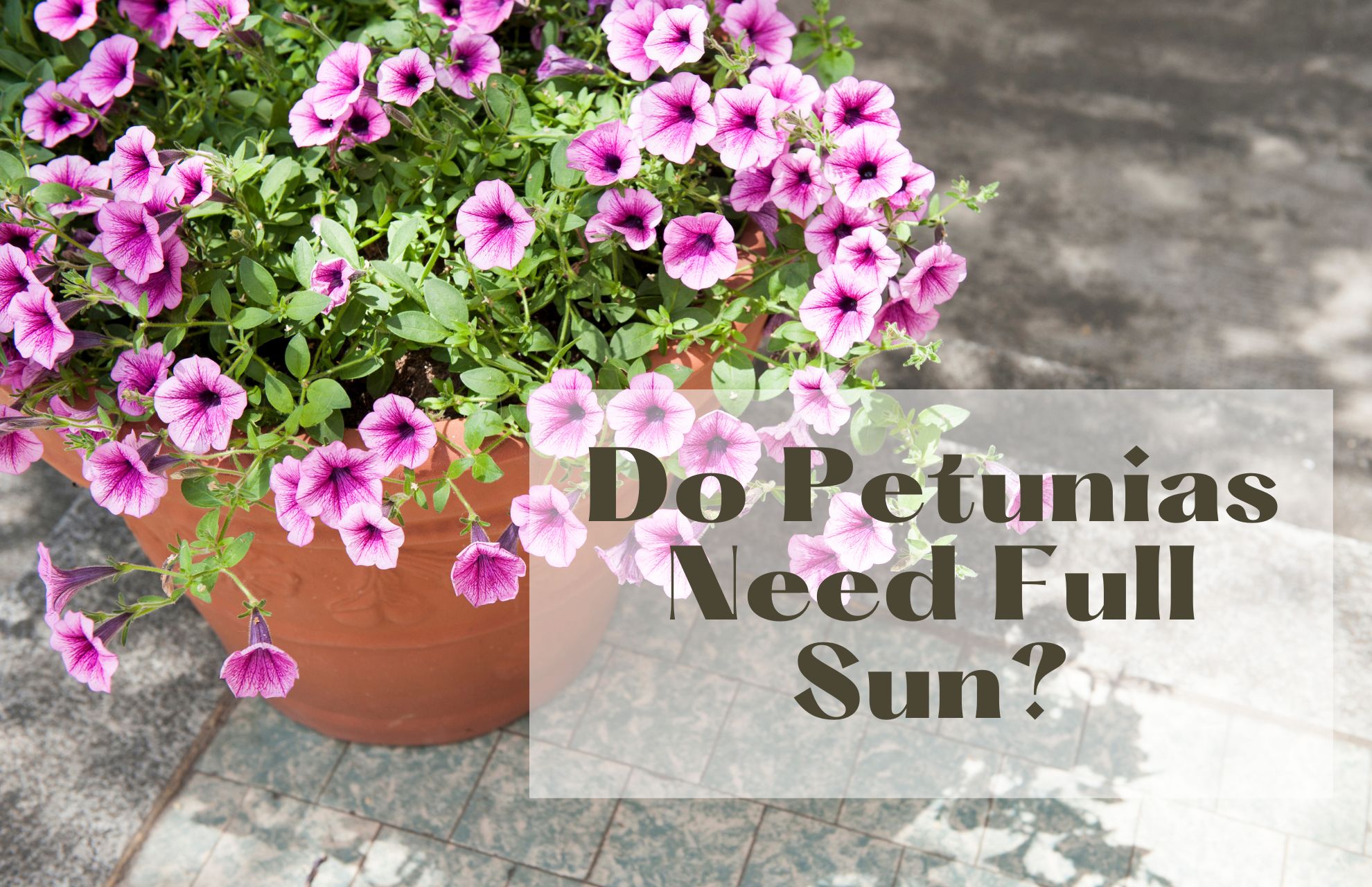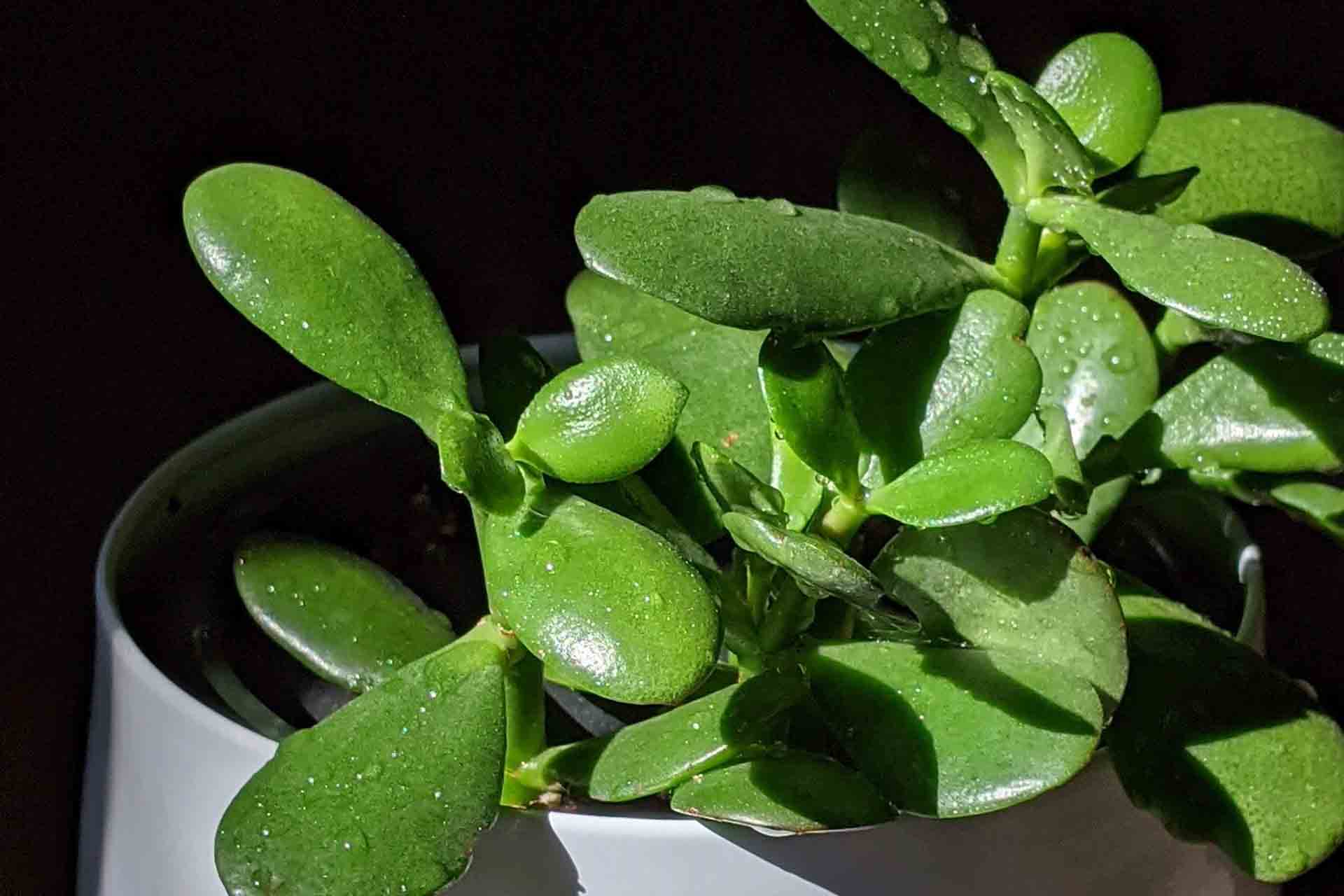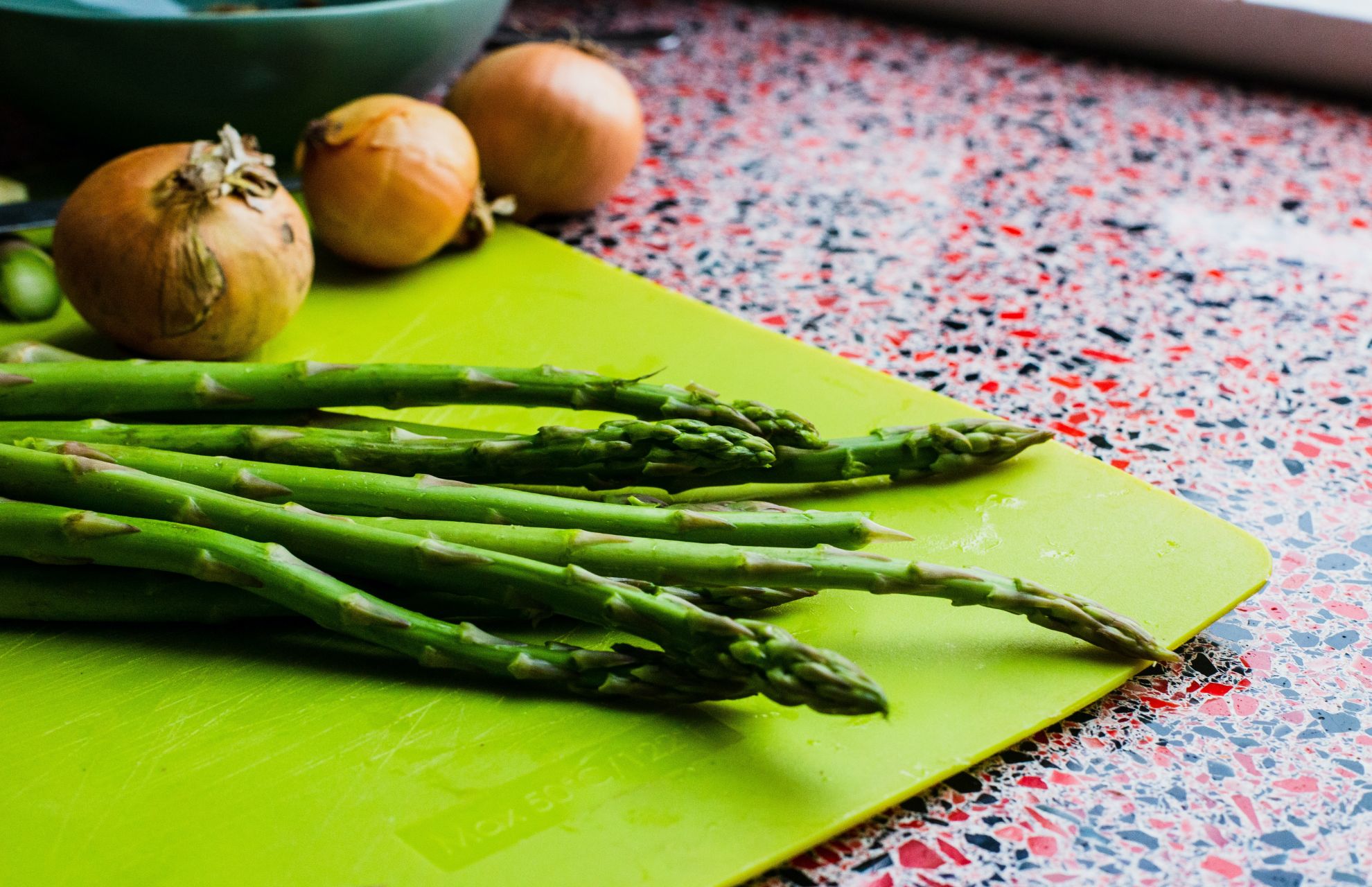The right amount of sunlight is essential for petunia growth. The amount of sunlight your petunias need to grow and how different levels of sunlight exposure impact this plant are covered in this article.
Petunias are a lovely addition to any landscape if you’re thinking about enhancing your outdoor living area. A surefire way to liven up your outdoor spaces is with lush plants that are overflowing with vivid colors.
How about shade or sunlight for petunias? Plant petunias will receive at least six hours a day of direct sunlight because they prefer full sun.
In your garden, petunias are among the most vibrant and simple-to-grow flowers. Learn more about petunias’ requirement for sunlight by reading on. You Might Also Like: How to Deadhead Petunias?
- Do Petunias Grow in Partial Sun Or Shady Areas?
- Can Petunias Grow in Indirect Sunlight?
- How Many Hours of Sun Do Petunias Need?
- What Happens If Petunias Don’t Get Enough Sun?
- Effects of Growing Petunias in Part-Shade to Full Shade
- Should You Use Lights When Caring for Indoor Petunias?
- Conclusion: Grow Bright and Beautiful Petunias
- FAQs
Do Petunias Grow in Partial Sun Or Shady Areas?
Petunias can grow in partial shade or even some shady areas, but they prefer full sun. Petunias will still bloom and grow in conditions other than full sunlight, but they might not produce as many flowers.
In fact, the number of petunia blooms decreases as the number of sunlight decreases. The likelihood of developing root rot and/or fungus-related problems also rises when plants are planted in more shady areas.
While petunias are hardy and only need well-draining soil and the occasional drink of water, the amount of sun your plants receive ultimately determines how healthy they will be.

Can Petunias Grow in Indirect Sunlight?
Petunias can sometimes tolerate bright indirect light, but it is not the best. The lack of direct light must be compensated for by giving your petunias at least 8 hours of indirect light each day.
To make up for the lack of direct sunlight, you can even increase this to 10 to 12 hours of indirect light. The best way to achieve this is to keep these annual flowers near a south-facing window in a sunny location.
As the sun moves from east to west across the sky, this will increase your plant’s exposure to light.
- Although not ideal, indirect light can be used.
- Petunias grown indoors require indirect light for at least 8 hours per day.
- To supplement the indirect light, take into account using this grower’s light.
You may want to think about giving your petunias an artificial light boost if you’re growing them in indirect light. Although artificial light cannot grow plants on its own, it can be a useful growing aid. Direct sunlight is not always present, but good UV light can help make up for it.
How Many Hours of Sun Do Petunias Need?
5–6 hours of direct sunlight is the ideal range for petunias. Although some gardeners claim that petunias can survive with only 4 hours of sunlight, this is insufficient to produce the best blooms from these flowers. Petunias of every variety enjoy the sun. They prefer to soak up as much sunlight as they can.
- Full sun is ideal for petunias.
- Petunias won’t grow well if they get less than 5 hours a day of direct sunlight.
- Without enough direct sunlight, petunia flowers won’t bloom.
For flowers to bloom, sunlight is essential. If your petunias don’t receive enough light, you won’t be able to see their vibrant blooms. You don’t want to take a chance on missing out because these prolific bloomers are grown primarily for their stunning flowers. Your petunias should be placed in a sunny area of your garden.
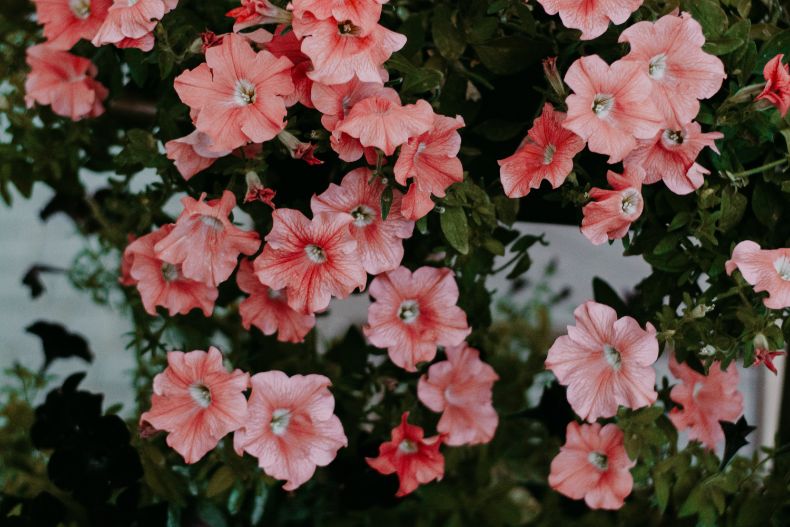
What Happens If Petunias Don’t Get Enough Sun?
Your petunias will produce fewer flowers if they don’t get enough sun. Insufficient sunlight will prevent your plant from producing many of those lovely flower colors. Petunias will also become spindly and weak without enough direct sunlight.
- Without enough sunlight each day, petunias will deteriorate and eventually die.
- Petunias aren’t likely to bloom if they’re grown in shaded areas.
- Petunias are more likely to contract a fungus when the environment is shady.
A number of petunia diseases are brought on by inadequate sunlight. Shady areas not only result in brown leaves and dead flowers but also raise the possibility of rot or fungal disease. Petunias require the most sunlight each day if you want them to have strong roots.
Effects of Growing Petunias in Part-Shade to Full Shade
Plant your petunias outside in the sunniest possible spots once the risk of hard frost has passed. Here are some of the ways to tell if petunias are not getting enough sun:
Sparse, “spindly” Or “leggy” Plants
When the plant thins out, that’s when you can usually tell if petunias need more sunlight. When this happens, you can see right through the plant and see the stem “legs” instead of admiring lush, green foliage and lots of flowers.
Lack of Blooms
The quantity of blooms on the plant is another sign that petunias are pleading for more sunlight. The plant probably needs more sun if it flowers infrequently or never at all.
Yellow Leaves
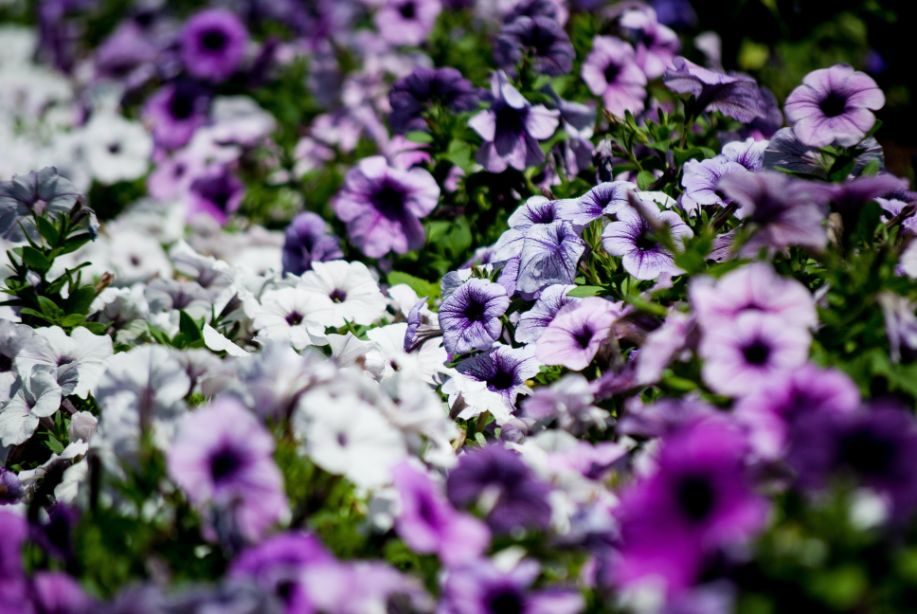
It may indicate either overwatering or underwatering if the leaves on a petunia plant turn yellow. Additionally, it might be a sign that the plant requires more sunlight. This is particularly true for ground-cover petunias in partial sun or potted petunias that need to be moved to a sunnier location.
Overly Moist Soil Conditions
Being able to dry out overly wet soil is another reason why more direct sunlight is crucial. Much longer than soil in sunnier areas, soil in shadier areas has a tendency to hold moisture. Petunias flourish in semi-dry soil, which is uncommon in semi-shaded areas.
The risk of root rot, crown rot, and possible fungus-related problems increases when petunias are planted in too-wet soil. These problems prevent healthy plant growth and blooms.
Should You Use Lights When Caring for Indoor Petunias?
If you’ve ever attempted to grow petunias from seed with the intention of relocating them outdoors once the risk of frost has passed, allow yourself at least 10 weeks to allow the plants to properly germinate. The petunia seedlings require a lot of light during the germination period in order to develop strong roots and be ready for transplanting.
It’s also possible to dig up outdoor petunia plants in the fall and move them indoors for care during the colder months.
Although a sunny window is an ideal location for caring for indoor petunias, even the sunniest windows in extremely cold climates can compromise a petunia’s chance of survival.
Artificial lighting can provide the extra boost of light those indoor petunias require to thrive during the winter months, depending on the climate and amount of sunlight.
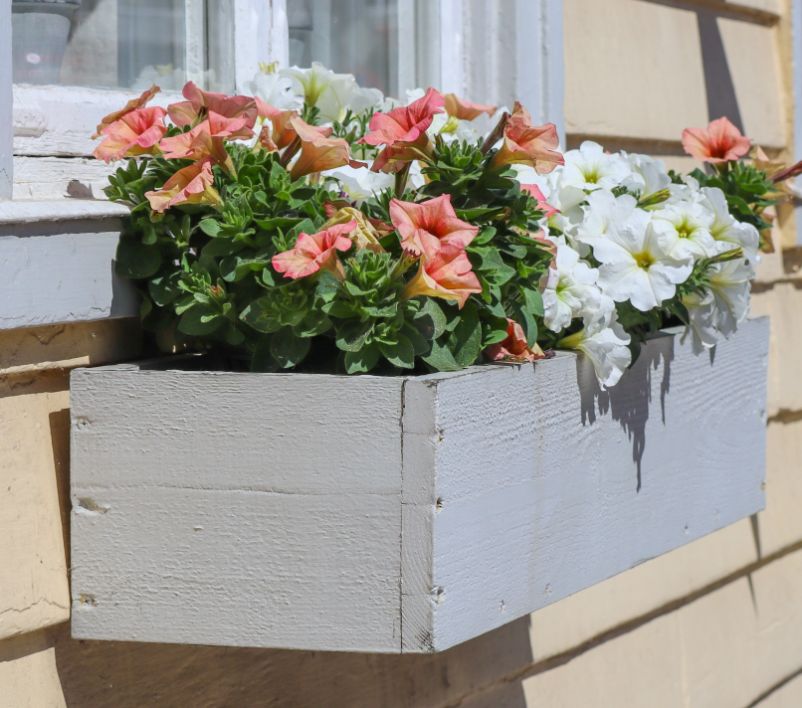
Keep the plants under the lights for at least 14 hours each day if they are dependent on artificial light. In order to maintain and grow at their best until they can return to the outdoors, petunias prefer warm, bright environments between 60 and 70 degrees Fahrenheit.
Conclusion: Grow Bright and Beautiful Petunias
Petunias do best in full sun, but they will also grow in some shade. An area is considered to be in full sun if it receives six or more hours of direct sunlight each day. An area with partial sun gets four to six hours of sun each day.
There is no requirement that the daylight hours be constant. Petunias are receiving full sun if they are exposed to the sun for four hours in the morning and another four hours in the late afternoon.
Now that you are aware of how much petunias enjoy plenty of direct sunlight and thrive in it, you are well on your way to creating a garden that is incredibly colorful.
FAQs
Do Petunias Need to Be Watered Daily?
It should be noted that petunias prefer full sunlight and that hot weather may cause container plants to dry out more quickly. During such periods the plants require two daily waterings. When the top 12–15 cm (5–6 inches) of the bed plant starts to dry out, water is needed. Plants that are in beds require deep watering once a week.
Do Petunias Prefer Morning Or Afternoon Sun?
The plants will do well if the early morning sun greets your petunias for a few hours and then again re-visits them for a few hours in the late afternoon. It takes four to six hours of direct sunlight to qualify as partial sunlight.
How Long Do Petunias Last in Pots?
Petunias only have one growing season and are annuals in colder climates. Within their warmer growing zones, petunias will come back every year but still don’t last very long—about three years.
Do Petunias Grow Back Every Year?
Petunias are perennial, although most bedding types are grown as annuals from seed each year. The perennial trailing species, such as Surfinias, are propagated from cuttings or young plants.

